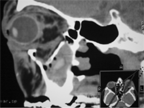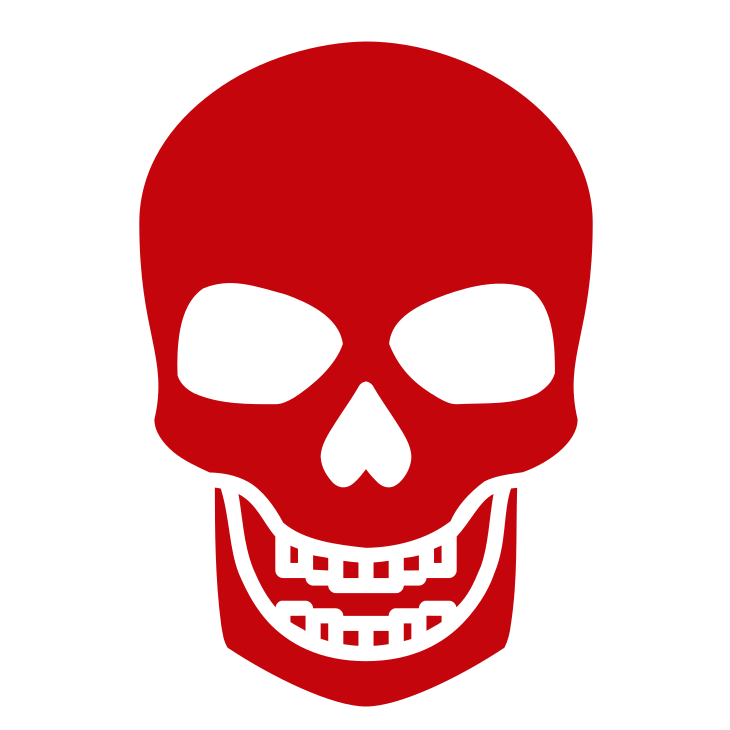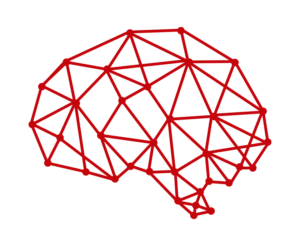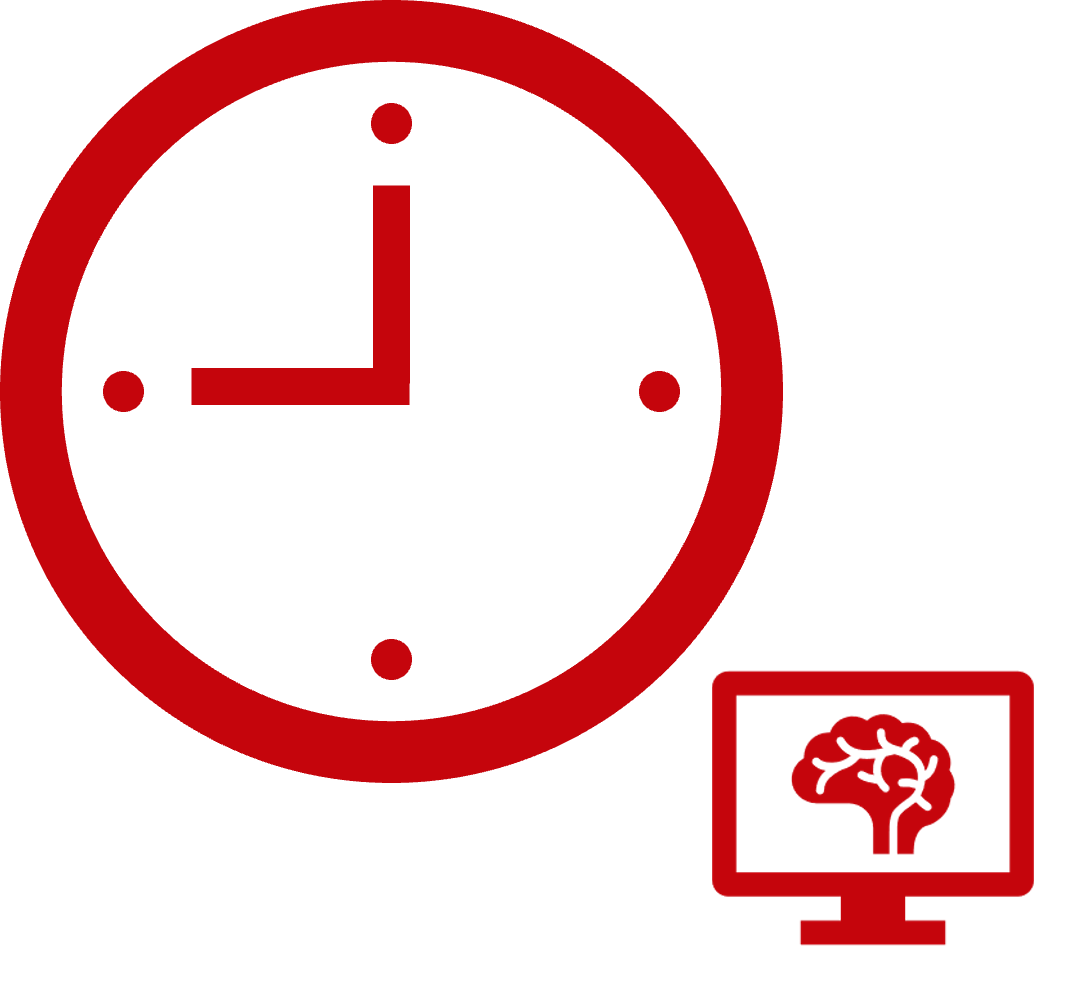
In the University of Wisconsin Department of Radiology Neuroradiology Section we pride ourselves on providing a collegial educational atmosphere for our fellows. Below is a brief overview of the curricular and educational highlights related to the fellowship program.
Rotations I Interdisciplinary Conferences I Educational Curriculum I Research Opportunities
Neuroradiology Rotations - Fellows Rotate Weekly throughout Year
![]()
Main Reading Room
The main reading room rotation is the heart of the fellowship. All of the adult brain and spine cases (both CT and MR) are interpreted in the main reading room with cases spanning a wide variety of neoplastic, traumatic, vascular, demyelinating, degenerative and infectious disease, as well as rare and atypical neuropathology. University Hospital is a level I trauma center, certified stroke center, comprehensive cancer center and busy transplant center. This is a busy clinical service and is largely coordinated by the clinical fellows on this rotation.
There are three faculty members that staff the main reading room daily and are physically present to teach the fellows and residents and to staff out cases throughout the day. Fellows on this rotation also perform image-guided procedures such as lumbar punctures and myelograms with patients scheduled and coordinated by a dedicated nurse coordinator.

Head and Neck Imaging
The head and neck rotation is a unique fellowship experience at the University of Wisconsin and one of the experiences that is most valued by our graduates. On this rotation, fellows and residents are presented with a well-defined head and neck curriculum and mentored by three neuroradiologists concentrating in head and neck imaging and fully engaged in teaching this important component of neuroradiology. All head and neck cases are interpreted on this rotation, including temporal bone, soft-tissue neck CT and MR, maxillofacial trauma, and orbital exams.
Fellows have access to recorded lectures, reading lists, and sets of teaching cases to supplement learning. Fellows graduate from UW with a level of confidence and training in head and neck that often distinguishes them from other neuroradiologists.
![]()
Pediatric Neuroradiology
The pediatric neuroradiology rotation is located in the American Family Children’s Hospital, which is connected to our main hospital. A fellowship-trained pediatric neuroradiologist usually staffs this rotation and provides a level of subspecialty expertise necessary in reviewing these complex cases. Fellows review all pediatric brain, spine, and head and neck studies on this rotation and gain additional experience in fetal MRI and neonatal ultrasound.

Advanced Imaging
The advanced imaging elective is a rotation where fellows have dedicated time to review advanced imaging studies including BOLD-contrast fMRI, diffusion tensor imaging, integrated PET/MRI, and intraoperative MR studies. Fellows are encouraged to participate in sequence/protocol development while on this rotation.
![]()
Neuroendovascular
The neuroendovascular service is a shared clinical service between Neuroradiology and Neurosurgery. A dedicated neuroendovascular fellow, neuroradiology fellows, and neurosurgery residents all participate on this service. By the end of the year, neuroradiology fellows spend a total of approximately 1-2 weeks on this rotation, sufficient to satisfy ACGME requirements for numbers of angiograms performed.

Late Shift/”Niner”
Fellows on this rotation begin their day at noon and review cases through 9pm on Monday, Tuesday, and Wednesday. Thursday and Friday of the “niner week” are reserved as academic days. From 5-9pm Monday-Wednesday, fellows review cases independently with faculty oversight.
This rotation is busy and most resembles a call rotation in clinical practice. This graduated experience allows the fellows to work on time efficiency and clinical operations in a fast-paced environment while building their neuroradiology expertise, confidence, and independence.
Interdisciplinary Conferences
The fellows gain experience and skills necessary to become an expert in the multiple subspecialties of neuroradiology by presenting clinical cases for our numerous interdisciplinary conferences. The fellows prepare cases with faculty guidance at the following conferences:
- Clinical Neuroscience Conference
- Neuro-oncology Tumor Board
- Head and Neck Tumor Board
- Pediatric Tumor Board
- Spine Conference
- Epilepsy
Educational Curriculum
There are a number of dedicated and recurring educational conferences and opportunities that are provided to the neuroradiology fellows:
- Fellows’ Conference: This is a didactic fellow-oriented conference series aimed at covering the wide breadth of neuroradiology and head and neck topics. It is presented by a neuroradiology faculty member every Friday at 7:30 a.m. Content-related lectures are grouped throughout the year to facilitate learning. Collaborating colleagues often augment these lectures with clinical presentations, providing clinical context to commonly encountered neuroimaging examinations.
- Physics: There is a long history of strong collaboration between the Department of Medical Physics and the Department of Radiology at the University of Wisconsin. There is a 2-week MR physics didactic series which reviews the fundamentals of MR. For the rest of the year, a weekly physics lecture is provided for the fellows in which advanced topics are covered.
- Journal Club: Each fellow will lead a journal club discussion with the section by selecting and reviewing a few articles recently published in the literature.
Research Opportunities
There are many clinical imaging research opportunities available to neuroradiology fellows encompassing radiomics, radiogenomics, 4D vascular flow imaging, functional connectivity, CSF flow analysis, dual-energy and low-dose CT techniques, integrated PET/MR, intraoperative MR, and a variety of quantitative MR techniques.
- Engagement of all fellows in a scholarly project under the mentorship of a neuroradiology faculty member
- Requirement for submission of work to a national/international conference and support to attend (ASNR, ASHNR, ISMRM, ISIS, RSNA, AUR, ARRS)
- Dedicated research time in Clinical Instructor year to pursue area of interest
- Tailored support for abstract, manuscript, and grant submissions